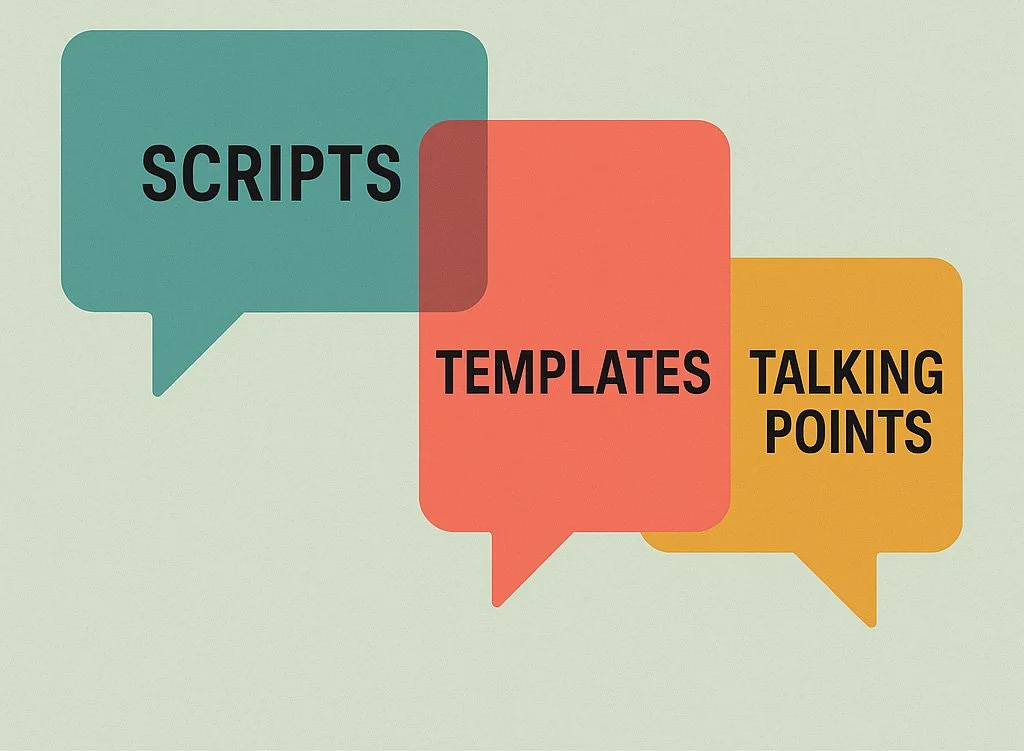Scripts, Templates, or Talking Points? Finding What Works for You
You pick up the phone. Your heart rate spikes. Your mind races. What do you say first?
This is where many sales reps freeze. They don’t need motivation, they need a plan.
So what works best: a detailed script, a flexible template, or a simple list of talking points?
Let’s break it down.
The Real Role of Sales Scripts
Sales scripts often get a bad reputation. People say they make you sound fake or robotic. But in reality, a script is just a tool. The key is how you use it.
A good script provides clarity and structure. It’s especially helpful for new reps or those who struggle with call reluctance. When nerves hit, having the words in front of you can keep the call moving forward.
The danger comes when you rely on the script too heavily. Reading it word for word with no energy or flexibility kills the conversation. Great reps know how to make a script sound like a natural conversation, not a performance.
Where Templates Fit In
Templates offer the structure of a script with the flexibility of customization. You’ll often use them for emails, voicemails, or LinkedIn outreach. They’re repeatable and efficient, but not rigid.
A template keeps your messaging consistent across your team while allowing each rep to adapt it to their tone and voice. If you need to move fast while staying focused, templates can be the perfect tool.
They don’t just save time. They prevent the mental drain of reinventing the wheel on every outreach.
The Power of Talking Points
Talking points are ideal for salespeople who are confident and know their offer well. Instead of telling you what to say, they remind you what not to forget.
They keep you focused while allowing space for real conversation. Talking points work best when you’ve already internalized your message and just need guideposts to stay on track.
But there’s a catch. If you aren’t fully prepared, talking points alone won’t save you. You might get lost mid-call or leave out something crucial. They require preparation, skill, and the ability to think clearly under pressure.
Which One Should You Use?
That depends on your experience, your comfort level, and the kind of outreach you’re doing.
If you’re new to sales or still building confidence, start with a script.
If you have some experience and want more freedom, use templates.
If you’re comfortable in real-time conversations and just need a roadmap, talking points may be all you need.
The most effective salespeople often use all three. They open with a script, personalize their outreach using templates, and stay sharp in live calls with talking points. The key is knowing what works best for you in each situation.
Choose the Tools That Build Confidence
There’s no rule that says you have to use just one method. Blend them. Test them. Refine them. The goal isn’t perfection, it’s connection.
Scripts give you a strong foundation. Templates offer speed and consistency. Talking points keep you grounded in the moment.
If you want to overcome hesitation and get real results, your preparation matters more than your personality.
To really dive deep and find out what might be holding you or your team back, explore our science-backed assessments.

